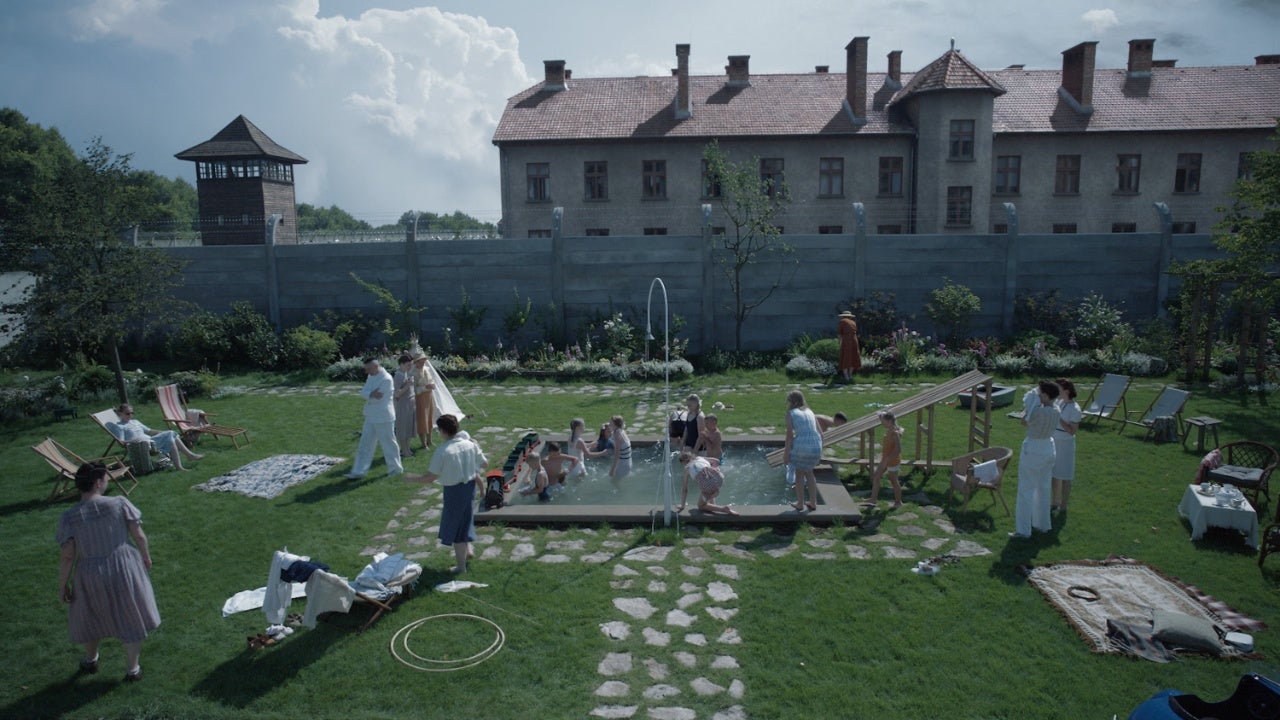“The Zone of Interest” continues to linger in my mind even seven months after my initial viewing. Jonathan Glazer’s bold interpretation of the Holocaust left me unsettled and deeply affected. In a cinematic landscape filled with narratives of the Holocaust such as “Night and Fog,” “Schindler’s List,” and “The Pianist,” Glazer’s adaptation of Martin Amis’ novel stands out for its unique approach. Unlike traditional Holocaust films that often urge viewers to bear witness to the atrocities, “The Zone of Interest” takes a different route, delving into the unsettling aspects of sanitization and normalization under the shadow of genocide.
Glazer’s film challenges conventional storytelling by immersing viewers in an atmosphere laden with discomfort. Set in the Auschwitz concentration camp, the story unfolds primarily through the perspective of Rudolf Höss, the camp’s commandant, portrayed with chilling stoicism by Christian Friedel. Glazer opts to focus on the mundane aspects of Höss’ life, juxtaposing the horrors within the camp with the banality of domesticity. This juxtaposition creates a haunting contrast, forcing viewers to confront the stark realities of life adjacent to genocide.
One of the film’s most striking aspects is its emphasis on audiovisual storytelling. Glazer, along with cinematographer Lukasz Zal, masterfully crafts a narrative that relies not only on visual cues but also on sound to evoke emotion and unease. Through meticulously framed scenes and a dynamic use of sound, Glazer underscores the intimate connection between the characters’ daily lives and the atrocities occurring just beyond their walls.
Central to the film is the theme of complicity, portrayed through the Höss family’s casual acceptance of the horrors around them. As they go about their daily routines, seemingly unfazed by the suffering nearby, Glazer highlights the insidious nature of evil and the ease with which it can be normalized. Friedel and Sandra Hüller, who portrays Hedwig Höss, deliver nuanced performances that navigate the fine line between humanity and inhumanity, further accentuating the film’s sense of unease.
Glazer’s film also delves into the mechanisms of sanitization and historical revisionism, offering a chilling commentary on how history remembers tragedy. Through deft editing and juxtaposition, Glazer forces viewers to confront the ways in which narratives are shaped and manipulated over time. As the film oscillates between past and present, Glazer highlights the enduring relevance of confronting uncomfortable truths, particularly in a world where the manipulation of history is all too common.
In “The Zone of Interest,” Glazer has crafted a film that transcends traditional Holocaust narratives, offering a thought-provoking exploration of complicity, normalization, and the manipulation of history. As haunting as it is timely, Glazer’s film is a stark reminder of the importance of bearing witness to the darkest chapters of human history.

